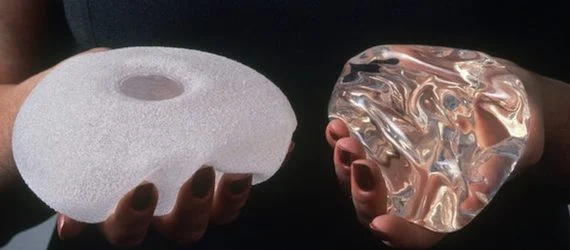Ministers announced introduction of a new register aimed at ‘cleaning up the industry’, by recording every breast implant operation in England. Wales, Scotland and Northern Ireland will decide if whether they will join the register.
The recent scare over sub-standard PIP implant revealed a serious lack of records, which meant that a number of surgeons were not in a position to inform their patients whether they were affected. Subsequently, doctors described the field as a poorly regulated "crisis waiting to happen".
The French company Poly Implant Prothese sold faulty implants containing sub-standard silicone gel with double the rupture rate of other implants, causing a global scare affecting over 300,000 women.
In an industry that has seen major growth in the UK over the years and it is now forecast to reach £3.6bn by 2015, cosmetic procedures are to be better regulated.
Prior to making it compulsory, the NHS and some private companies will trial a new system for registering implants (similar to the National Joint Registry for hip operations), and the Royal College of Surgeons will design new professional standards and qualifications for cosmetic surgery.
Rajiv Grover, consultant plastic surgeon and president of the British Association of Aesthetic Plastic Surgeons (BAAPS), welcomed this initiative and reiterated the association’s call for an outright ban on all advertising of medical procedures. According to Grover, anyone considering cosmetic surgery had several aspects to think about such as the possible risks, the qualifications of the provider, their own expectations and the recovery, and he believes a ‘Christmas sale, a two-for-one if they book by Friday’ and other such advertised financial incentives should never play a part in a sensible decision-making process.
Vicky Ashton had PIP implants and is part of a campaign group for those women affected. She told BBC News changes in the industry were not being implemented fast enough, insisting that the government should have introduced a compulsory register long ago. While optimistic about what these changes will do in future, Ashton is concerned that there was not enough being done for the women that are affected now.
Mr Simon Withey is a consultant plastic surgeon and part of the panel which reviewed the industry. His statement to the BBC defended the industry: "The rhetoric is it's a cowboy industry. It's not. Most surgeons are excellent, but it doesn't take many poor ones to wreak havoc." Whitey confirmed a breast implant register was "exactly the right thing to do", and went on to emphasise how this will act as an early warning system for product failure, allowing for faster patient tracking in case of a repeat scandal such as PIP.
Latest Articles
Breast, Implants, Medical Records, medical register, plastic surgery, BAAPS
Ministers announced introduction of a new register aimed at ‘cleaning up the industry’, by recording every breast implant operation in England. Wales,...


![Tuberculosis Diagnostics: The Promise of [18F]FDT PET Imaging Tuberculosis Diagnostics: The Promise of [18F]FDT PET Imaging](https://res.cloudinary.com/healthmanagement-org/image/upload/c_thumb,f_auto,fl_lossy,h_184,q_90,w_500/v1721132076/cw/00127782_cw_image_wi_88cc5f34b1423cec414436d2748b40ce.webp)





